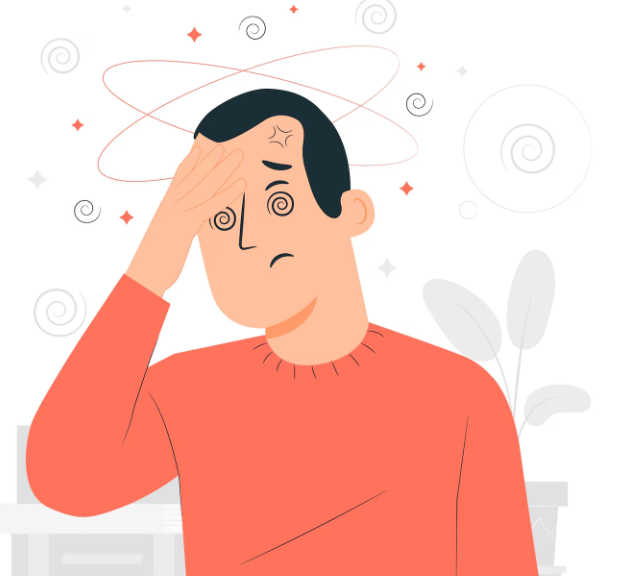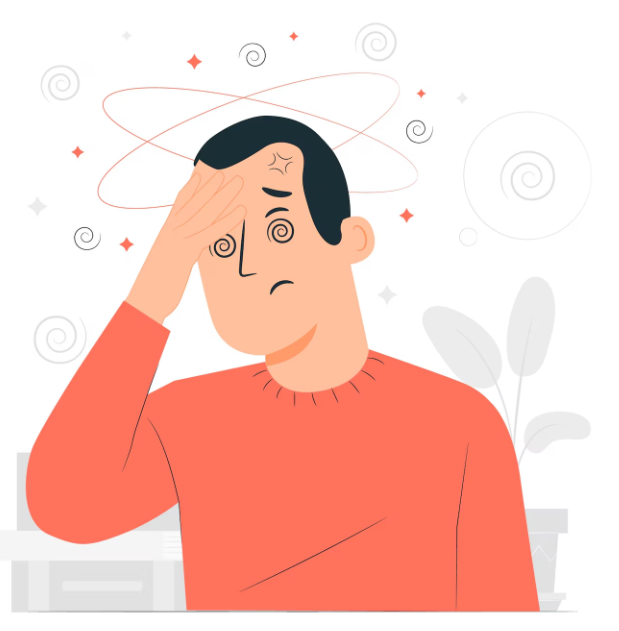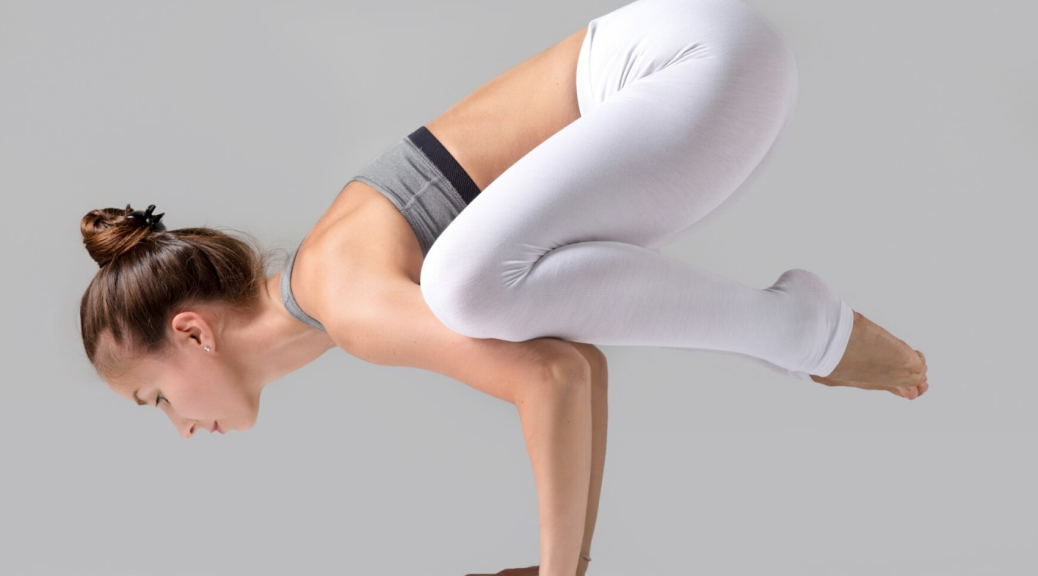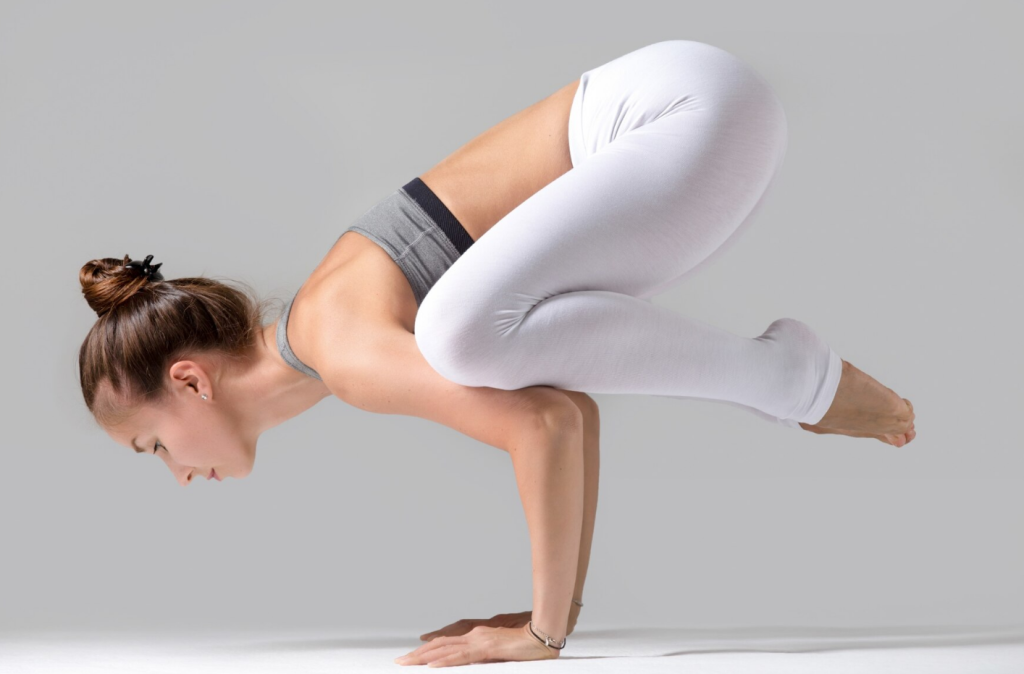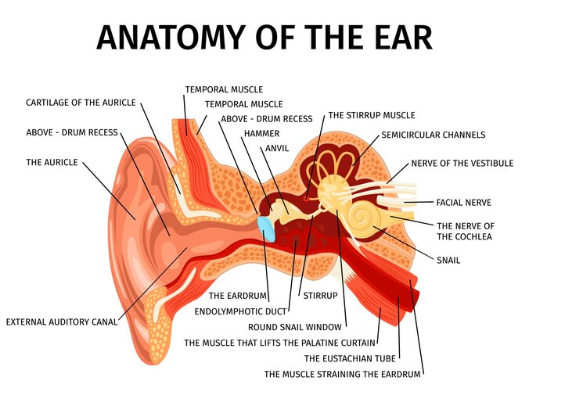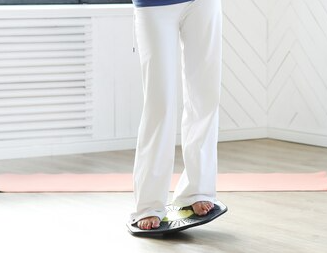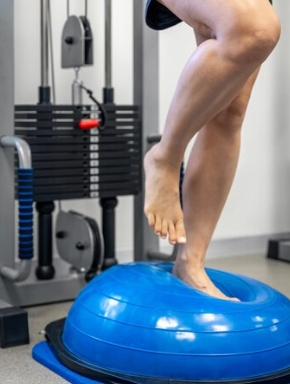Have you ever felt like the room is spinning after you roll over in bed, look up at a shelf, or bend forward? It may feel like the world is moving around you even though you are still, and this is called vertigo. One of the most common causes is a condition called Benign Paroxysmal Positional Vertigo (BPPV). The good news: BPPV is not dangerous and is very treatable with vestibular physiotherapy. At PhysioNow, we help treat many cases of this condition, often within just a couple of sessions!
How does BPPV occur?
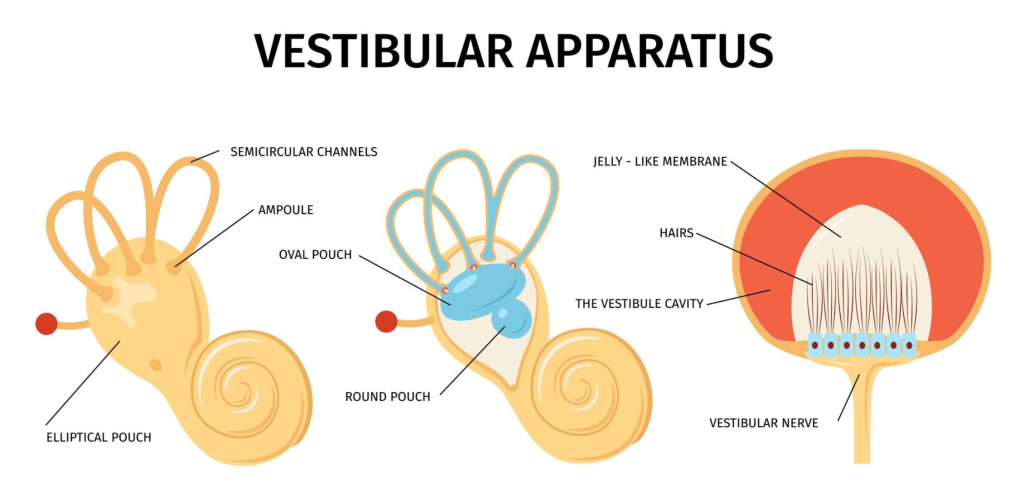
BPPV happens when tiny calcium crystals in the inner ear move into the wrong place. These crystals normally help your balance, but when they slip into another part of the ear, called the semicircular canals, they send false signals to the brain. These signals tell your brain that the body is moving, but this conflicts with all your other senses like your eyes that tell you the body is NOT moving. The result is short bursts of vertigo, creating a strong spinning sensation. Once the crystals settle down again, the vertigo disappears. Thus, vertigo from BPPV is episodic and usually lasts 1-2 min each time it is triggered kk. However, it is important to note that BPPV is not the sole cause of vertigo even though it is a very common one. As a result, getting treated by a Vestibular Physiotherapist is the best way to find the source of your vertigo.
What are the symptoms of BPPV?
- Short episodes of vertigo (<1-2min)
- Specific and consistent triggers, usually lying down/sitting up, rolling in bed, bending, or looking up
- May be accompanied by nausea or vomiting
- Imbalance or unsteadiness during episodes
- Not associated with hearing loss
How is it diagnosed?
BPPV can develop spontaneously but is also very commonly developed after a traumatic head injury. This trauma literally shakes the crystals loose, which can happen even a couple weeks after the initial injury. These traumatic types are usually more severe than spontaneous BPPVs as more crystals and canals are involved.
Either way, no matter how it develops, the diagnosis is the same. First, a subjective exam to ask about your symptoms, severity, location, and circumstances. Then, we use some clinical tests to check specifically for BPPV. These 2 tests are called the Dix-Hallpike and the Horizontal Roll/BBQ Roll Test, both of which look very different from the physiotherapy you might be used to! If it is BPPV, your eyes will start to move in a very distinctive darting pattern called nystagmus. Then, based on this pattern we can determine which ear and canal is affected, and can pick the correct strategy to guide the crystal out.
How is it treated?
Treatment is safe, effective, and usually provides extremely quick relief after a period of temporary discomfort. We use canalith repositioning maneuvers, guided movements that use gravity to move the crystals back. Common maneuvers include:
- Epley maneuver
- ↔️ Semont maneuver
- BBQ roll / Lempert maneuver
- Gufoni maneuver
During the session, your vertigo will be triggered and is a necessary part of the treatment. Rest assured, these feelings are temporary and most people feel much better after even 1–2 sessions. Post-traumatic cases may need more visits, but the expected recovery is still excellent. Additionally, recurrence is common. About 50% of people experience BPPV again within 2 years with post-traumatic cases more likely to recur. That’s why at PhysioNow, we make a recurrence plan, which includes:
- Regular follow-up if needed
- Education on self-management with home exercises
- Knowing when to return for treatment
- Lifestyle tips for reducing risk fo recurrence
The importance of vestibular rehabilitation
Just like after an injury, the affected area tends to lose function. The same with an ankle, or a knee, the vestibular system also needs to be retrained. After an episode of BPPV and subsequent treatment, some people still report feelings of difficulty with visually busy areas, motion sensitivity, or feelings of unsteadiness. In this case, Vestibular Rehabilitation Therapy should be done to restore your normal function and regain your confidence!
Looking for help with vertigo?
Look for PhysioNow! We have many skilled vestibular physiotherapists that can help you overcome your BPPV. Come visit us at 1 of our 10 locations across the west GTA including Burlington, Oakville, Mississauga, and Etobicoke. We know that vertigo and dizziness can be overwhelming to deal with, so get help quick. Book with PhysioNow today for your first assessment and treatment!
